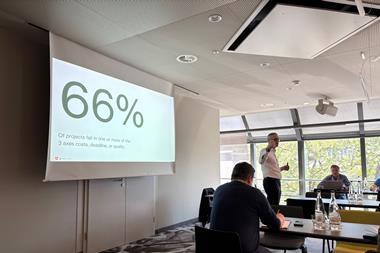The face of French boardrooms is about to change as women take advantage of the latest legislation

In January 2013, a law that forbade Parisian women from wearing trousers was at last repealed. Somewhat behind the times in this respect, in other areas, the potential for French women to contribute to growth and enterprise is increasingly recognised.
An AMRAE workshop on the risks and opportunities for women presented compelling evidence as to why this should be the case. In particular, a survey by McKinsey, demonstrated that companies with a large proportion of women on their boards outperformed their competitors, while a Leeds university study from 2008 showed that having even a single woman on the board reduced risks of failure by 20%.
Yet, in 2011, only 20% of board members in France were women, while across the workforce, female salaries were 27% lower than their male counterparts.
Some of that can be explained by the greater number of female workers in part-time jobs, or working in ill-paid sectors of the economy, but 7% of the difference in salaries cannot be explained by any factor other than discrimination.
Moreover, it was depressing to note that France comes 57th out of 135 in the Global Gender Gap survey produced by the World Economic Forum.
It was in an effort to set things on a more equal footing that the French government passed a law in 2011 that women should make up 20% of the board of companies of a certain size by 2014 and 40% by 2017, with severe sanctions for failure to comply.
At the time, much was written about ‘the final glass ceiling’, but judging by some of the comments made by the professional women attending the workshop, the battle for equality is not yet won.
Many of the comments concerned the difficulties of combining a professional career with family life – especially where a workplace culture demanded commitment to working whatever hours were necessary. What was clear, however, was that the risks of failing to enlist the talents of women were great. A loss of reputation would ensue, as well as a loss of competitiveness and a failure to understand customers.
Women, after all, influence 70% of consumer decisions.





















No comments yet